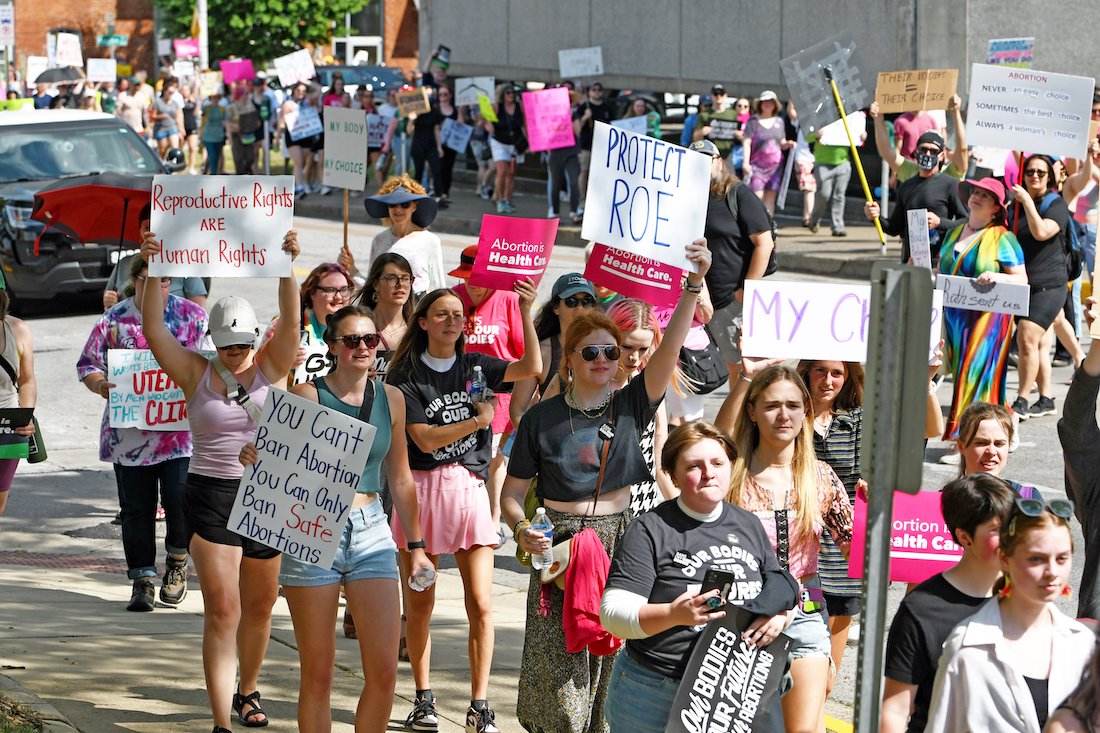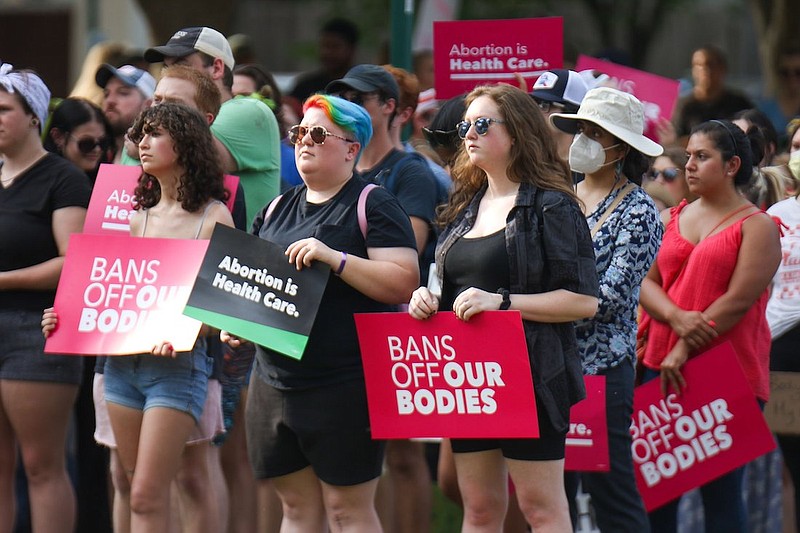A Chattanooga obstetrician specializing in high-risk pregnancies recently told The Wall Street Journal that Tennessee's abortion law led her to send a patient on a six-hour ambulance ride to North Carolina for potentially life-saving care.
Dr. Leilah Zahedi-Spung said in the article last week that she recently saw a patient in her second trimester of pregnancy who had rising blood pressure, indicating she was at risk of a severe preeclampsia -- a dangerous condition that can cause serious complications, including death.
Zahedi-Spung told the publication that the patient's unborn child had been diagnosed with genetic abnormalities, making it unlikely the child would survive, and she believed the safest option for the mother was to undergo an abortion to terminate the pregnancy. Zahedi-Spung declined an interview for this story but verified the accuracy of the account in the Journal.
Tennessee's Human Life Protection Act, which went into effect in August, deems any action to terminate a pregnancy a felony punishable up to 15 years in prison. Unlike some other states with restrictive abortion laws, the Tennessee law does not allow exceptions such as cases in which a fetus is developing abnormally and is likely to die.
Physicians in Tennessee can present an "affirmative" defense if prosecuted for performing an abortion, meaning the burden of proof is on the clinician, in cases in which the procedure was necessary in order to prevent death or irreparable harm to the mother. According to the Journal, "Zahedi-Spung said she wasn't confident the woman's condition was dire enough to meet that standard and feared that being charged with a crime could upend her life for years, even if she eventually was vindicated."
(READ MORE: Confusion over Tennessee abortion law sows fear among Chattanooga doctors)
"She decided to send the woman on a roughly six-hour ambulance ride to end her pregnancy in North Carolina, where she arrived with dangerously high blood pressure and signs of kidney failure, the doctor said," according to the article.
 Staff Photo by Robin Rudd / Marchers cross East 11th Street as they arrive at the Chattanooga City Hall. Tennesseans gathered and marched for abortion rights at Bans Off Our Bodies rallies around the state Saturday on May 14, 2022. The local march started at Miller Park and circled to the Chattanooga City Hall.
Staff Photo by Robin Rudd / Marchers cross East 11th Street as they arrive at the Chattanooga City Hall. Tennesseans gathered and marched for abortion rights at Bans Off Our Bodies rallies around the state Saturday on May 14, 2022. The local march started at Miller Park and circled to the Chattanooga City Hall.Sen. Randy McNally, R-Oak Ridge, who serves as speaker for Tennessee's Republican-led Senate, told The Wall Street Journal that the state's law does provide protection for doctors in these cases.
"Those driving the narrative that the law does not contain a true exception or that medically necessary care is outlawed are opposed to the law in its totality," McNally said in the article. "If these imagined 'flaws' in our law were 'fixed,' they would continue to pick apart the law until there was nothing left."
Charlie Wysong, a Chattanooga anti-abortion activist and president of the American Rights Coalition, said in a phone interview that he agrees with McNally's comments.
"There was a remedy other than sending (the patient) to North Carolina, but the doctor didn't want to take the option and apparently didn't want to inform the patient of that option," Wysong said, pointing to the law's affirmative defense. "I just believe that they don't know how to read the law and don't want to read the law. I think we've got a very good law in Tennessee."
Dr. Jessica Scotchie, a Chattanooga-based reproductive endocrinologist -- a surgical subspecialty of obstetrics and gynecology that treats patients who are struggling to conceive or carry pregnancies -- said via email that she understands Zahedi-Spung's concerns.
"I respectfully disagree with our legislators, including our speaker, that think physicians are overestimating the risk of providing care to women with pregnancy complications or blowing this out of proportion in terms of our fear of being criminalized for providing medical care," Scotchie said, pointing to legal guidance that providers are receiving.
"Attorneys in (Tennessee) have advised hospitals and physicians otherwise and that we do need to be concerned about the risk of providing care to women with highly desired pregnancies but who are having pregnancy complications and need to have a pregnancy ended," she said. "The fact that they think a prosecutor won't prosecute a physician doesn't mean a current or future prosecutor won't try to prosecute us if the law is written such that they legally can prosecute us."
Contact Elizabeth Fite at efite@timesfreepress.com or 423-757-6673. Follow her on Twitter @ecfite.
